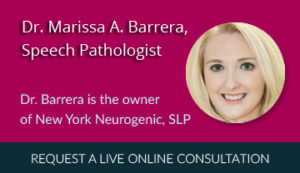Speaking Problem
When one is not able to produce speech sounds fluently or correctly, or has difficulty with their speech, they have a speech problem or speech disorder as it is called in the common parlance. Stuttering, difficulty speaking articulation disorders and fluency disorders are some of the examples of speech problems. Speaking problems are also known as speaking disorders, talking disorders and speaking abnormalities.
There are many types of speech problems that affect millions of people around the world. Some of the common speech problems are Dyslalia, Aphonia, Dysphonia Plicae Ventricularis, Voice hoarseness, rapid speech, speaking with a lisp, limited speech, slurred speech, Breathy speech, Stammering and Nasal Speech.
While learning to communicate, children go through different stages of speech development. However, both adults and children run the risk of having speech problem. The speech problem can appear due to a medical condition. Speech abnormalities may have no known cause.
According to the experts, speech problems like articulation disorders, stammering and other speech disorders can be treated with speech therapy. However, this requires the completion of the course of treatment.
Causes and symptoms
The causes of most speech problems are still being investigated. experts concur on the view that deafness and hearing loss are significant causes of speech problems that affect million of people in the world.
If your child is continuous in missing speech milestones, is significantly behind his or her peers in the acquisition of speech and/or language skills or your child is in a high risk group, it is time to consult a medical professional. As soon as a slight suspicion of hearing loss appears to you, call your health care provider without any further delay.
Since speech problem can have a lasting effect on children, which is negative, the sufferers may not like to speak to their peers or other persons. Naturally they run the risk of getting adversely affected resulting in the bad performance in school and social development. This SO it is incumbent upon the parents that they should do to help their child overcome the speech abnormalities.
Speech problems pose no risk to others because they are not contagious. However, parents and family members of the sufferer may have guilt feeling that can play havoc with them.
Diagnosis
Speaking problems are generally noticed by parents or teachers in the school. While diagnosing speaking problem the person concerned must take history into account. Tests are generally conducted on the basis of the suspected cause. For instance if hearing loss is suspected, a hearing test may be recommended. BAER (Brain stem evoked-response audiometry) is also used in the diagnosis of speaking problem.
Prevention
As is generally believed that hearing loss and mental retardation are the contributory predisposing factors for speech problems, the affected child should be referred to an audiologist who will conduct an audiology exam.
Treatment
The best treatment for speech problems is prevention and early intervention by a speech pathologist. The most common treatment for people having speech abnormalities or problems is speech therapy. Though a time consuming exercise, speech training, if employed consistently can have significant impact.
The article above is part of our website blog and does not represent opinion or advice of Marissa A Barrera and other staff members.








